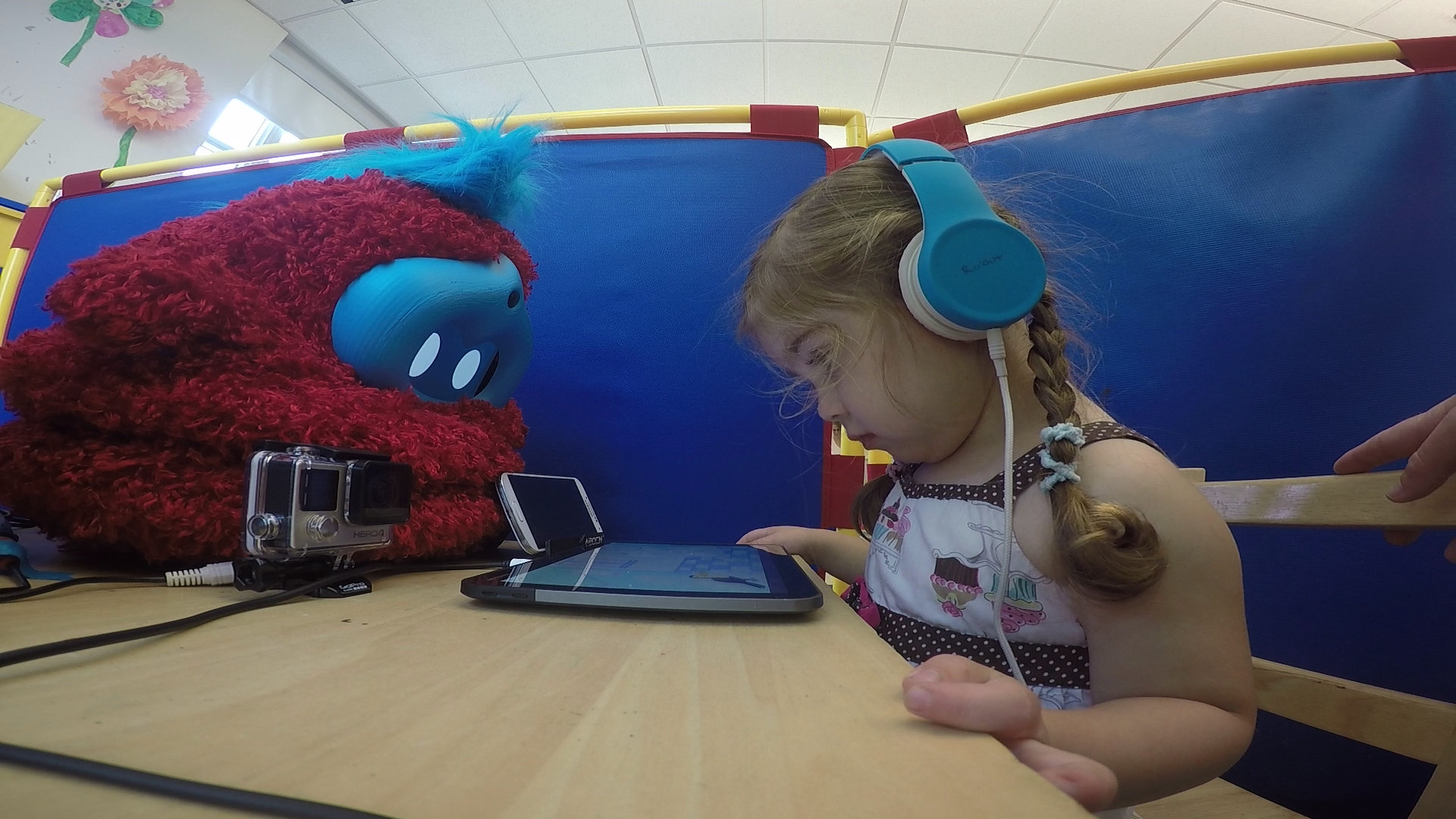Tega is a “socially assistive” robot that senses the emotional state of a learner, and based on those cues, creates a personalized motivational strategy. It was developed by Cynthia Breazeal at MIT to enable long-term educational interactions with children. It uses an AFFDEX Android device with emotion/facial expression recognition software by Rosalind Picard‘s Affectiva, to process movement, perception and thinking, and can respond to individual children’s behaviors.
In a learning trial, the system mirrored the emotional response of students — getting excited when they were excited, and distracted when they lost focus — and tracked the impact of each of these cues on the student. Over time, it learned how the cues influenced a student’s engagement, happiness, and learning successes. As the sessions continued, it personalized its responses to optimize each student’s experience.
Click to view MIT video.
Rosalind Picard will be a keynote speaker at NeuroTech NYC on June 8th.
Wearable Tech + Digital Health NYC – June 7, 2016 @ the New York Academy of Sciences
NeuroTech NYC – June 8, 2016 @ the New York Academy of Sciences
